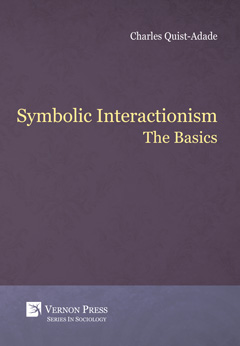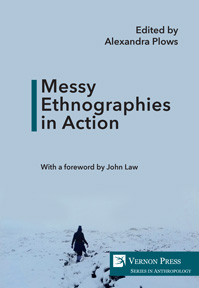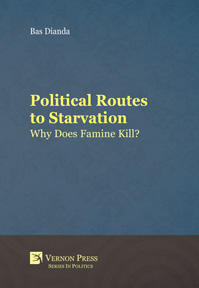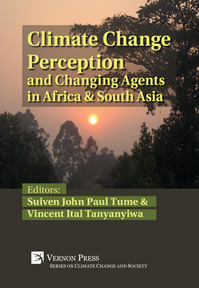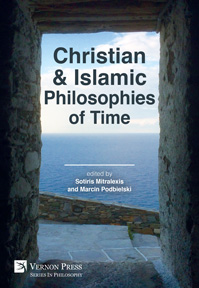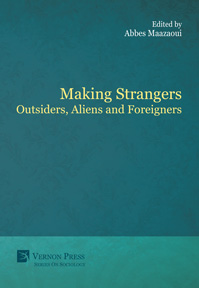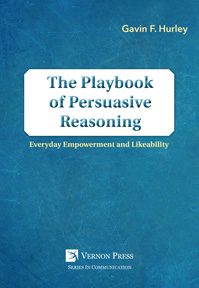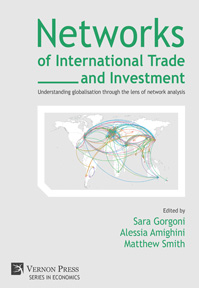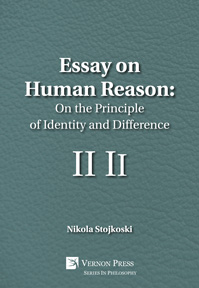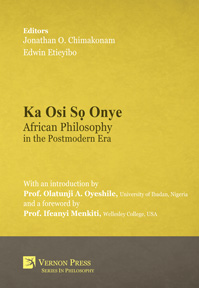Search
Browse
by Publication status
by Subject
Anthropology (28) Art (126) Business and Finance (27) Cognitive Science and Psychology (56) Communication and Journalism (49) Economics (63) Education (70) History (150) Human Geography (22) Interdisciplinary (43) Language and Linguistics (139) Law (16) Music Studies (19) Philosophy (162) Political Science and International Relations (105) Sociology (323) Statistics and Quantitative Methods (21)by Series
Series in Literary Studies (71) Series in Philosophy (59) Series in Education (55) Series in Sociology (46) Bridging Languages and Scholarship (33) Series in Politics (33) Series in World History (32) Series in Language and Linguistics (25) Series in Philosophy of Religion (22) Cognitive Science and Psychology (21) Series in American History (20) Critical Perspectives on Social Science (19) Series in Art (19) Series in Cinema and Culture (16) Series in Critical Media Studies (16) Curating and Interpreting Culture (15) Series in Anthropology (14) Series on the History of Art (14) Economics (14) Series in Business and Finance (13) Series in Music (12) Series in Communication (10) Series in Performing Arts (9) Philosophy of Personalism (8) Series in Law (8) Series on Climate Change and Society (8) Series in Economic Methodology (7) Women's Studies (7) Classics in Economics (6) Series in Economic Development (6) Philosophy of Forgiveness (5) Series in Built Environment (5) Series in Economic History (5) Series in Philosophy of Science (5) Series in Social Equality and Justice (5) Series on the History of Science (4) Serie En Estudios Literarios (3) Serie en Sociología (3) Series in Contemporary History (3) Series in Creative Writing Studies (3) Series in Design (3) The Interdisciplinary Built Environment (3) Serie en Comunicación y Medios (2) Serie en Historia (2) Serie en Música (2) Series in Heritage Studies (2) Series in Innovation Studies (2) Series in Philosophy of Race (2) Serie en Ciencias Políticas (1) Serie en Entorno Construido (1) Serie en Estudios Culturales (1) Serie en Filosofía (1) Serie en Filosofía de la Ciencia (1) Serie sobre Cambio Climático y Sociedad (1) Series in Classical Studies (1) Series in Economics of Technological Change (1) Series in Urban Studies (1)by Language
English Spanishby Author
Symbolic Interactionism: The Basics
Charles Quist-Adade, Kwantlen Polytechnic University, Canada
Availability: In stock
218pp. ¦ $60 £42 €48
This book is a survey of Symbolic Interaction. In thirteen short chapters, it traces the history, the social philosophical roots, the founders, “movers and shakers” and evolution of the theory. Symbolic Interactionism: The Basics takes the reader along the exciting, but tortuous journey of the theory and explores both the meta-theoretical and mini-theoretical roots and branches of the theory. Symbolic interactionism or sociological social psychology traces its roots to the works of United States sociologists George Hebert Mead, Charles Horton Cooley, and Herbert Blumer, and a Canadian sociologist, Erving Goffman; Other influences are Harold Garfinkel’s Ethnomethodology and Austrian-American Alfred Schutz’s study of Phenomenology. Symbolic Interactionism: Basics explores the philosophical sources of symbolic interactionism, including pragmatism, social behaviorism, and neo-Hegelianism. The intellectual origins of symbolic interactions can be attributed to the works of William James, George Simmel, John Dewey, Max Weber, and George Herbert Mead. Mead is believed to be the founder of the theory, although he did not publish any academic work on the paradigm. The book highlights the works of the intellectual heirs of symbolic interactionism— Herbert Blumer, Mead’s former student, who was instrumental in publishing the lectures his former professor posthumously with the title Symbolic Interactionism, Erving Goffman and Robert Park.
Messy Ethnographies in Action
Edited by
Alexandra Plows, Bangor University
Availability: In stock
216pp. ¦ $59 £43 €48
This edited collection of chapters showcases original and interdisciplinary ethnographic fieldwork in a range of international settings; including studies of underground pub life in North East England; Finnish hotels; and bio-scientific institutions in the Amazonian rainforest. Informed by John Law’s concept of ethnographic “mess,” this book makes a unique, empirically-informed, contribution to an understanding of the social construction of knowledge and the role that ethnography can and does play (Law, 2004). It provides a range of colourful snapshots from the field, showing how different researchers from multiple research environments and disciplines are negotiating the practicalities, and epistemological and ethical implications, of “messy” ethnographic practice as a means of researching “messy” social realities. Law notes that “social…science investigations interfere with the world…things change as a result. The issue, then, is not to seek disengagement but rather with how to engage” (ibid p14). Drawing on their own situated experiences, the book’s contributors address the “messy” implications of this and also explore the (equally messy) issue of why engage. They reflect on the process of undertaking research, and their role in the research process as they negotiate their own position in the field. What is ethnography “for”? What impact should, or do, we have in the field and after we leave the research site? What about unintended consequences? When (if ever) are we “off duty?” What does “informed consent” mean in a constantly shifting, dynamic ethnographic context? Is ethnography by its very nature a form of “action research?” By providing a wide range of situated explorations of “messy ethnographies,” the book presents a unique, hands-on guide to the challenges of negotiating ethnography in practice, which will be of use to all researchers and practitioners who use ethnography as a method.
Political Routes to Starvation
Why Does Famine Kill?
April 2018 / ISBN: 978-1-62273-309-5Availability: In stock
432pp. ¦ $68 £49 €55
This book seeks to reclassify famine by offering an in-depth look at the phenomenon that continues to affect millions of people across the world every year. Defined as a widespread scarcity of food, Dr. Basilio Dianda argues that the causes of famine cannot be reduced exclusively to a shortfall in agricultural output or to economic dynamics. Instead, an analysis of famine must take into account political and economic factors as well as agricultural, climatologic and demographic data. ‘Political Routes to Starvation’ is the result of an all-encompassing analysis of eighty famines from across the globe. This extensive piece of research demonstrates that there are not only multiple factors at play in the genesis of a food crisis, but also in its evolution to starvation. Dianda contends that in order to fully understand the causes of famine it is necessary to reinstate a hierarchy between foundation and concomitant causes, especially when cross-comparing cases. Importantly, Dianda maintains that only a comprehensive approach to famine can appropriately answer the questions: What is famine? How does famine occur? Why does famine kill?
Climate Change Perception and Changing Agents in Africa & South Asia
Edited by
Suiven John Paul Tume, Green Care Association, Cameroon
and Vincent Itai Tanyanyiwa, Zimbabwe Open University, Zimbabwe
Availability: In stock
180pp. ¦ $57 £41 €46
‘Climate Change Perception and Changing Agents in Africa & South Asia’ presents first-hand experiences of climate change perception. Now more than ever understanding public perceptions of climate change is fundamental in creating effective climate policies, especially within countries that are particularly vulnerable to climate change. Striving to present a comprehensive study of climate perception in Africa and South Asia, this volume presents seven in-depth case studies from Cameroon, the Eastern Himalayas, Kenya, Nepal, and Zimbabwe. In order to combat climate change, effective communication is essential in order to educate, persuade, warn and mobilize the masses. Therefore, climate change communication is shaped not only by our different experiences and beliefs but also by the underlying cultural and politic values of a country. Within this volume, climate change communication is examined from Cameroonian, Kenyan and Zimbabwean perspectives. From the role of stakeholders to practical field experiences, the individual case studies present an interesting and informative portrait of climate change communication. It is often the poorest and most vulnerable people who are most affected by the impacts of climate change. Therefore, community-based adaptation is an approach that is aimed at empowering communities in the process of planning for and coping with climate change. In this book, this progressive and innovative approach is examined from a grass-roots perspective that looks to both the Eastern Himalayas and Zimbabwe. Readers are presented with case-studies that investigate the importance of indigenous knowledge, community-based research and the role of social workers in climate change mitigation. This high-quality resource puts forward a well-informed and accessible discussion of climate change perception that will be of interest to both students and scholars, alike.
Christian and Islamic Philosophies of Time
Edited by
Marcin Podbielski, Jesuit University Ignatianum, Kraków, Poland
and Sotiris Mitralexis, City University of Istanbul, Turkey; University of Winchester, UK
Availability: In stock
179pp. ¦ $58 £43 €49
This volume constitutes an attempt at bringing together philosophies of time—or more precisely, philosophies on time and, in a concomitant way, history—emerging from Christianity’s and Islam’s intellectual histories. Starting from the Neoplatonic heritage and the voice of classical philosophy, the volume enters the Byzantine and Arabic intellectual worlds up to Ibn Al-Arabi’s times. A conscious choice in this volume is not to engage with, perhaps, the most prominent figures of Christian and Arabic philosophy, i.e., Augustine on the one hand and Avicenna/Ibn Sina on the other, precisely because these have attracted so much attention due to their prominence in their respective traditions—and beyond. In a certain way, Maximus the Confessor and Ibn Al-Arabi—together with Al-Fārābi—emerge as alternative representatives of their two traditions in this volume, offering two axes for this endeavor. The synthesis of those approaches on time and history, their comparison rather than their mere co-existence, is left to the reader’s critical inquiry and philosophical investigation.
From Head to Heart: High Quality Teaching Practices in the Spotlight
Nicholas D. Young, American International College
et al.
Availability: In stock
182pp. ¦ $57 £41 €46
It is widely acknowledged that today’s teachers are tasked with educating increasingly diverse students as well as addressing their academic and social-emotional needs. This book examines cutting-edge teaching practices that make a difference in improving general educator and/or student performance across the grade spans. The emphasis is placed on research-based strategies, practices, and theories that can be readily translated into classroom practice. From Head to Heart: High Quality Teaching Practices in the Spotlight considers the importance of more personal topics within the teaching field, such as teacher wellness, as well as including information on effective teaching practices that seek to inspire and empower students and teachers. This book will be of interest to those that work within a pedagogical environment as well as university students and parents, alike.
Stars in the Schoolhouse: Teaching Practices and Approaches that Make a Difference
Nicholas D. Young, American International College
et al.
Availability: In stock
196pp. ¦ $58 £42 €47
It is acknowledged that today’s teachers are tasked with educating increasingly diverse students as well as with addressing their academic and social-emotional needs. The Stars in the Schoolhouse: Teaching Practices and Approaches that Make a Difference offers a visionary look at teaching skills and practices that focus on the classroom, technology, and specific content areas that are often ignored in educational conversations. Emphasis is placed on research-based strategies, practices, and theories that can be readily translated into classroom practice, whilst examining cutting-edge teaching practices that make a difference in improving general educator and/or student performance across the grade spans. This high-quality teaching resource will be of interest to regular and special educators, school administrators, guidance counselors, graduate education professors, and university students.
Directing the Narrative and Shot Design
The Art and Craft of Directing
Lubomir Kocka, Savannah College of Art and Design
Availability: In stock
446pp. ¦ $68 £49 €55
This book is a “directing-altering book” as it provides high-quality learning resources that encourage and challenge film enthusiasts, aspiring directors, film students, and professionals to strive for new levels of excellence and impact in their film directing, television directing, and new media directing. This book puts forward a well-informed and innovative discussion of critical director’s choices that have not previously been considered by existing texts on film and television directing. This book presents a wide range of directorial concepts and directing exercises that include: • Psycho-physiological regularities in left-right/right-left orientation transferred to a shot design. How directors can manipulate the viewer’s perception of a character and of the journey they are on using screen direction. • Methodology and visual strategy for rendering a scene based on character perspective. • The directorial concept of emotional manipulation. • Demystifying the 180-degree rule.
Making Strangers: Outsiders, Aliens and Foreigners
Edited by
Abbes Maazaoui, Lincoln University of Pennsylvania
Availability: In stock
188pp. ¦ $58 £43 €49
Studies on foreignness have increased substantially over the last two decades in response to what has been dubbed the migration/refugee crisis. Yet, they have focused on specific areas such as regions, periods, ethnic groups, and authors. Predicated on the belief that this so-called “twenty-first century problem” is in fact as old as humanity itself, this book analyzes cases based on both long-term historical perspectives and current occurrences from around the world. Bringing together an international group of scholars from Australia, Asia, Europe, and North America, it examines a variety of examples and strategies, mostly from world literatures, ranging from Spain’s failed experience with consolidation as a nation-state-type entity during the Golden Age of Castile, to Shakespeare’s rhetorical subversion of the language of fear and hate, to Mario Rigoni Stern’s random status at the unpredictable Italian-Austrian borders, to Lawrence Durrell’s ambivalent approach to noticing the physically visible other, to the French government’s ongoing criminalization of hospitality, to Sandra Cisneros’s attempt at straddling two countries and cultures while belonging to neither one, to the illusive legal limbo of the DREAMers in the United States. We are not born foreigners; we are made. The purpose of the book is to assert, as denoted by the title, this fundamental premise, that is, the making of strangers is the result of a deliberate and purposeful act that has social, political, and linguistic implications. The ultimate expression of this phenomenon is the compulsive labeling of people along artificial categories such as race, gender, religion, birthplace, or nationality. A corollary purpose of the book is to help shed light worldwide on one of the most pressing issues facing the world today: the place of “the other” amid fear-mongering and unabashedly contemptuous acts and rhetoric toward immigrants, refugees and all those excluded within because of race, gender, national origin, religion and ethnicity. As illustrated by the examples examined in this book, humans have certainly evolved in many areas; dealing with the “other” might not have been one of those. It is hoped that the book encourages reflection on how the arts, and especially world literatures, can help us navigate and think through the ever-present crisis: the place of the “stranger” among us.
Market Abuse Regulation in South Africa, the United States of America and the United Kingdom
Howard Chitimira, North West University, South Africa
Availability: In stock
236pp. ¦ $56 £46 €53
This book provides a concise comparison of the regulation and enforcement of the anti-market abuse laws (insider trading and market manipulation) in South Africa, the United States of America (USA) and United Kingdom (UK). Bringing together a number of previously published articles, the book provides a novel discussion of the challenges associated with the enforcement of market abuse laws in both developing countries such as South Africa and developed ones such as the USA and the UK. This is primarily done to examine and expose the current strengths and weaknesses of market abuse laws in relation to certain aspects of the corporate, securities and financial markets environments in South Africa, the USA and the UK. Accordingly, chapters two to five of the book unpack the regulation and enforcement of market abuse laws in South Africa and the USA in a comparative perspective. Thereafter, chapters six to eight of the book discuss the regulation and enforcement of market abuse laws (Financial Markets Act 19 of 2012) and other related statutes in South Africa and the UK. The book proposes some measures that could be utilised to enhance the enforcement of anti-market laws in South Africa, USA and the UK. New market abuse-related challenges that occurred during the global financial crisis are also briefly discussed. The book further provides a relatively adequate overview of the comparative analysis of the regulation of market abuse in South Africa versus two key developed and respected jurisdictions, namely, the USA and the UK. Accordingly, it is hoped that the book can aid regulatory authorities, financial market participants, academics, students and other interested readers to understand market abuse offences and possible measures that could be employed to combat such offences.
The Playbook of Persuasive Reasoning
Everyday Empowerment and Likeability
Gavin F. Hurley, Ave Maria University
Availability: In stock
190pp. ¦ $58 £41 €47
'The Playbook of Persuasive Reasoning: Everyday Empowerment and Likeability' provides an easy, practical guide to the strategies of persuasive reasoning, which Gavin Hurley argues is crucial to all effective communication. Helping professionals and students to become better and more likeable communicators, this fundamental “playbook” outlines numerous eye-opening communicative maneuvers for readers of all levels and backgrounds. It offers a unique approach to argumentation and persuasion and moves away from the more conventional methods which are often overtechnical, unnecessarily complex or too science oriented. Hurley demonstrates how to successfully apply these strategies of cooperative argumentation to your life in order to succeed professionally, socially and cerebrally. This he argues, will allow you to empower your messaging and increase your social magnetism. 'The Playbook of Persuasive Reasoning' is a down-to-earth guide on effective rhetorical strategizing. It is written for everyday application, based on everyday examples, and embedded in everyday language. Today, successful communication is a highly sought-after trait by international employers, clients, and customers alike. Gavin Hurley shows how a wide range of people can benefit from learning how to deliver more abstract material in an effective manner: both verbally and written. This guide is particularly appealing for professionals, including business managers, as well as academics and students, including public intellectuals. 'The Playbook of Persuasive Reasoning' is a useful book for anyone wanting to enrich their skills and strengthen their powers of communication in order to have a social and professional advantage.
Networks of International Trade and Investment
Understanding globalisation through the lens of network analysis
Edited by
Sara Gorgoni, University of Greenwich et al.
Availability: In stock
344pp. ¦ $68 £48 €55
In recent decades, the international economy has witnessed fundamental changes in the way manufacturing is organised: products are no longer manufactured in their entirety in a single location. Instead, the production process is often split across a number of stages located in countries that are frequently far apart from each other. By spreading out their manufacturing and supply chain activities globally through international investment and intra-firm trade, Multinational enterprises (MNEs) play a focal role in this reorganisation of production. Our ability to understand the global economy, therefore, requires an understanding of the interdependencies between the entities involved in such fragmented production. Traditional methods and statistical approaches are insufficient to address this challenge. Instead, an approach is required that allows us to account for these interdependencies. The most promising approach so far is network analysis. ‘Networks of International Trade and Investment’ makes a case for the use of network analysis alongside existing techniques in order to investigate pressing issues in international business and economics. The authors put forward a range of well-informed studies that examine compelling topics such as the role of emerging economies in global trade and the evolution of world trade patterns. They look at how network analysis, as both an approach and a methodology, can explain international business and economics phenomena, in particular, in relation to international trade and investment. Providing a comprehensive but accessible explanation of the applications of network analysis and some of the most recent methodological advances in its field, this edited volume is an important contribution to research in international trade and investment.
On the Principles of Social Gravity
How Human Systems Work, From the Family to the United Nations
March 2018 / ISBN: 978-1-62273-396-5Availability: In stock
222pp. ¦ $58 £48 €55
“On the Principles of Social Gravity” proposes a radical new way of thinking about social systems. It explains that all social systems –institutions created of and for human beings e.g. healthcare system, family, military etc., – are held together or governed by nine principles or rules. Using these principles, it examined the problems facing the US healthcare system, criminal justice system, social security, student debt crisis, tax policies, immigration, the political system, and the United Nations. Then, provided novel and unique solutions to them. It expands on the meaning of social entropy and explains how it affects all social systems. It explains new terms like social gravity, de-entropification, primary and secondary contributors, negative and positive homogeneity, positive and negative homogenous group, homogenization, etc. that many readers will find enlightening and very interesting. It is a book that is likely to spark national and even global discussions about many of the institutions we have created. It’s originality and usefulness makes it very likely that it will find a wide audience and many of its terms may become popular in the wider society. Since anyone could use the same principles developed in this book to understand and solve the problems with any social system, it will be useful for adoption in the university, for researchers and professors in the social sciences.
Essay on Human Reason: On the Principle of Identity and Difference
February 2018 / ISBN: 978-1-62273-379-8Availability: In stock
136pp. [Color] ¦ $55 £42 €48
The nature of human reason is one of the thorniest of mysteries in philosophy. The reason appears in many specific forms within general areas such as cognition, thinking, experiencing beauty, and moral judgment. These forms are “perfectly” known in philosophy, yet an unknown pattern has been noticed which shows us that they are all a variation of the same theme: truth is an identity relation between the “thought” and “reality”; justice is an identity relation between the given and the deserved; beauty is an identity relation as rhyme is an identity relation between the final sounds of words; rhythm is an identity relation between time intervals; symmetry is an identity relation between two halves; proportion is an identity relation between two ratios; anaphora is an identity relation between the initial words. Particular things are identities in themselves and universals are identities between particulars. One idea associates another idea identical to it; an analogy is an identity between relations; induction is an identification between the known and unknown instances; and all the logic rests on the law of identity. What is common for all of them is the nature of reason itself.
Fixed or Flexible Exchange Rates? History and Perspectives
Marin Muzhani, CDI College, Canada
Availability: In stock
386pp. ¦ $65 £52 €60
The economy of the industrialized countries in the 21st century has already moved to a new level of mass production and technology never seen before, thanks in part to globalization, advanced technologies, new organization management methods, and innovative supply chain. A relatively large number of mass-produced commodities (characterized as non-premium) and services in Western economies are somehow sold at discounts rather than regular prices at a much higher frequency that was never seen before. This phenomenon has completely changed how we look at the theory of the firm in microeconomics. This book is indented to introduce new ideas and theories by challenging the current modern micro-and-macro economic theories. In a globalized world, the economies of advanced countries have entered a new phase called “economy pricing,” where most of the mass commodities are sold at a low price during certain periods of the year, called ‘sales events’. In addition to low prices, most industrialized countries have had record low inflation, low-interest rates, low growth, and low unemployment rates. This book will contend how the “Economy Pricing System” is about to revolutionize how people look at a real economy’s micro and macro effects.
Ka Osi Sọ Onye: African Philosophy in the Postmodern Era
Edited by
Jonathan O. Chimakonam, University of Pretoria, South Africa
and Edwin Etieyibo, University of the Witwatersrand
Availability: In stock
394pp. ¦ $67 £50 €57
This collection is about composing thought at the level of modernism and decomposing it at the postmodern level where many cocks might crow with African philosophy as a focal point. It has two parts: part one is titled ‘The Journey of Reason in African Philosophy’, and part two is titled ‘African Philosophy and Postmodern Thinking’. There are seven chapters in both parts. Five of the essays are reprinted here as important selections while nine are completely new essays commissioned for this book. As their titles suggest, in part one, African philosophy is unfolded in the manifestation of reason as embedded in modern thought while in part two, it draws the effect of reason as implicated in the postmodern orientation. While part one strikes at what V. Y. Mudimbe calls the “colonising structure” or the Greco-European logo-phallo-euro-centricism in thought, part two bashes the excesses of modernism and partly valorises postmodernism. In some chapters, modernism is presented as an intellectual version of communalism characterised by the cliché: ‘our people say’. Our thinking is that the voice of reason is not the voice of the people but the voice of an individual. The idea of this book is to open new vistas for the discipline of African philosophy. African philosophy is thus presented as a disagreement discourse. Without rivalry of thoughts, Africa will settle for far less. This gives postmodernism an important place, perhaps deservedly more important than history of philosophy allocates to it. It is that philosophical moment that says ‘philosophers must cease speaking like gods in their hegemonic cultural shrines and begin to converse across borders with one another’. In this conversation, the goal for African philosophers must not be to find final answers but to sustain the conversation which alone can extend human reason to its furthermost reaches.
The Political Economy of the Space Age
How Science and Technology Shape the Evolution of Human Society
Andrea Sommariva, SDA Bocconi, Milan, Italy
Availability: In stock
258pp. ¦ $61 £46 €52
This book provides answers to the questions of why human-kind should go into space, and on the relative roles of governments and markets in the evolution of the space economy. It adopts an interdisciplinary approach to answer those questions. Science and technology define the boundaries of what is possible. The realization of the possible depends on economic, institutional, and political factors. The book thus draws from many different academic areas such as physical science, astronomy, astronautics, political science, economics, sociology, cultural studies, and history. In the literature, the space economy has been analyzed using different approaches from science and technology to the effects of public expenditures on economic growth and to medium term effects on productivity and growth. This book brings all these aspects together following the evolutionary theory of economic change. It studies processes that transform the economy through the interactions among diverse economic agents, governments, and the extra-systemic environment in which governments operate. Its historical part helps to better understand motivations and constraints - technical, political, and economical - that shaped the growth of the space economy. In the medium term, global issues - such as population changes, critical or limited natural resources, and environmental damages – and technological innovations are the main drivers for the evolution of the space economy beyond Earth orbit. In universities, this book can be used: as a reference by historians of astronautics; for researchers in the field of astronautics, international political economy, and legal issues related to the space economy. In think tanks and public institutions, both national and international, this book provides an input to the ongoing debate on the collaboration among space agencies and the role of private companies in the development of the space economy. Finally, this book will help the educated general public to orient himself in the forest of stimuli, news, and solicitations to which he is daily subjected by the media, television and radio, and to react in less passive ways to those stimuli.
Re-Imagining Old Age: Wellbeing, care and participation
Marian Barnes, University of Brighton
et al.
Availability: In stock
214pp. ¦ $59 £42 €48
The understanding that humans are relational beings is central to the development of an ethical perspective that is built around the significance of care in all our lives. Our survival as infants is dependent on the care we receive from others. And for all of us, in particular, in older age, there are times when illness, emotional or physical frailty, mean that we require the care of others to enable us to deal with everyday life. With this in mind, this book presents the findings of a project that seeks to understand what wellbeing means to older people and to influence the practice of those who work with older people. Its starting point was a shared commitment amongst researchers and an NGO collaborator to the value of working with older people in both research and practice, to learn from them and be influenced by them rather than seeing them as the ‘subjects’ of a research project. Theoretically, the authors draw upon a range of studies in critical gerontology that seek to understand how experiences of ageing are shaped by their social, economic, cultural and political contexts. By employing a broad body of work that challenges normative assumptions of ‘successful’ ageing,’ the authors draw attention to how these assumptions have been constructed through neo-liberal policies of ‘active ageing.’ Notably, they also apply insights from feminist ethics of care, which are based on a relational ontology that challenges neo-liberal assumptions of autonomous individualism. Influenced by relational ethics, they are attentive to older people both as co-researchers and research respondents. By successfully applying this perspective to social care practice, they facilitate the need for practitioners to reflect on personal aspects of ageing and care but also to bridge the gap between the personal and the professional.
Eugen Ehrlich: Bibliographic Index
Edited by
Slávka Tomaščíková, Pavol Jozef Šafárik University in Košice, Slovakia
Availability: In stock
352pp. ¦ $66 £49 €56
The Bibliographic Index EUGEN EHRLICH is a guide through available materials containing information about the life, scientific, educational, legislative and social activities of the Austrian lawyer and university professor in the period of 1896-1918. Eugen Ehrlich was the Dean in 1901-1902 and 1908-1909 and the Vice-Dean of the Faculty of Law in 1902-1903 and 1909-1910, the Vice-Rector in 1907-1908, and the Rector of Franz Joseph University in Czernowitz in 1906-1907 (now Ukrainian: Chernivtsi). Moreover, ex officio, he was a member of the local parliament. The Index includes the foreword of the compilers, an introductory article, a selected basic chronology with the dates of the life and work of Eugen Ehrlich, and the four main structural parts: “List of works by Eugen Ehrlich”, “Eugen Ehrlich as editor”, “Literature about Eugen Ehrlich’s life and activity” and “Appendices: Documents from Chernivtsi University Scientific Library holdings”. “List of works by Eugen Ehrlich”, “Periodicals with Eugen Ehrlich's publications”, “List of used periodicals”, and “Name index” are all provided for the convenience of users. The “Name index” includes all the names recorded in the main text of the publication (numbers of bibliographic records of works devoted to individual persons are enclosed in parentheses). The book contains photographs of Eugen Ehrlich and photographs of materials linked to his life and activities. They have made the bibliographic index more attractive and more interesting for readers. The Index can help users find necessary documents and verify the accuracy of existing information, that it becomes a prerequisite for further research, and finally, it will be useful to all who are interested in Eugen Ehrlich’s life journey and scientific legacy.
Lucian Blaga: Selected Philosophical Extracts
Edited by
R. T. Allen et al.
Availability: In stock
190pp. ¦ $58 £44 €49
After the Editor's General Introduction, the extracts include central elements of Blaga’s metaphysics, general epistemology, philosophies of science, history, religion, language and especially metaphor, the experience of space and time, art, and finally culture which includes all of them, especially the presence in all of ‘style’ and distinctive ways of practising them. All these extracts are linked by his general epistemology, especially his distinction between two types of knowledge: ‘paradisiac’ or Type 1, which is that of everyday awareness and the current methods, concepts and presuppositions of the sciences of nature and humanity, plus mathematics and philosophy, and accumulates in ‘plus knowledge’ and resolves problems in standard ways; and ‘Luciferican’ or Type 2, which opens up the ‘mysteries’ of new realms of reality which do not fit the current methods, concepts and presuppositions, and so results in ‘minus’ knowledge, the awareness that there are things which at the moment we cannot understand. For these ‘mysteries’ new methods, concepts and presuppositions are required, which ‘abyssal’ categories can supply, ones below those we normally employ and may be aware of. It is part of man’s role in the cosmos to reveal such mysteries. They are also linked by Blaga's awareness of historical changes, especially ‘dogmatic aeons’ in which a prevailing framework of categories, etc., guides knowledge and research, and ones in which Type 2 knowledge dominates and new frameworks are eventually created. Each extract has its own Introduction which places it in the context of the rest of his interlinked philosophy. They show how Blaga, with both general themes and concepts and also with particular examples, combines much of the concerns and methods of Analytic and Continental philosophy, and how his historical perspective applied especially to modern times long before anyone spoke of 'postmodernism', and thus as in his lifetime.

